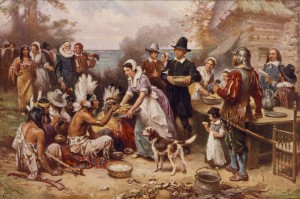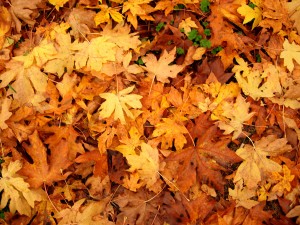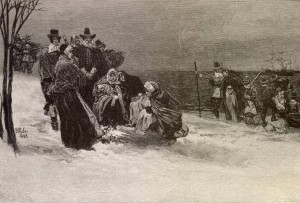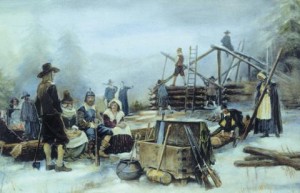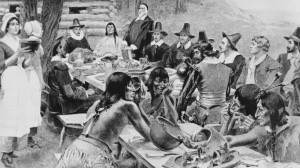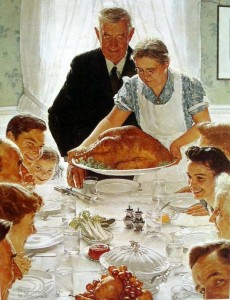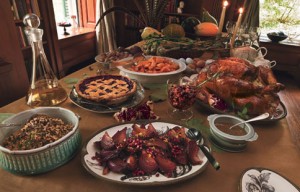
Shownotes
Wisdom-Trek / Creating a Legacy
Welcome to Day 175 of our Wisdom-Trek, and thank you for joining me.
This is Guthrie Chamberlain, Your Guide to Wisdom.
The First Thanksgiving
Thank you for joining us for our 7 days a week, 7 minutes of wisdom podcast. This is Day 175 of our Trek, and yesterday we located the 7-mile markers to boost your gratitude. Today I will share additional details around the Blessings of the First Thanksgiving. If you miss any of our Wisdom-Trek episodes, please go to Wisdom-Trek.com to listen to them and read the daily journal.
We are recording our podcast from our studio at Home2 in Charlotte, North Carolina. This episode is being released the Sunday before Thanksgiving, and if things go according to our plan, we should have most of the leaves harvested. I will update you with those details once it is accomplished.
The sinusitis or cold that I have been battling for over a week now is finally starting to wane although it has really zapped my energy this week, which is unusual. I spoke with my brother Jack today, and his family has had the same type of cold. He also mentioned that it has really drained him of energy also. It is good to know that soon I will be back to normal, or at least normal for me.
It is time to head out on our trek for today. As we hike, it is a time to remember all the blessings in our own lives and discover how the first Thanksgiving Day was established. I will share this story with you so that we can remember it, gain wisdom from it, and apply it to creating our living legacy. Our story today is…
Remember the Blessings of the First Thanksgiving
This week Americans across the country will sit down and devour their turkey dinner with all the trimmings, including pumpkin pie. Some will bow their heads and say a humble “thank you” to God for their blessings of the year while others will just dive in and eat. Regardless of your family’s practice, most people agree that this is one of our country’s most popular and enjoyable holidays. But how many of us talk about the history of this particular holiday that makes it so unique? Let’s do that right now!
Thanksgiving is our oldest national holiday and is the only holiday in the United States decreed by a joint resolution of both houses of Congress and yearly proclamations by our presidents. Each proclamation has expressed gratitude to God, making Thanksgiving the only holiday of a religious nature that seems to be politically correct today. Thanksgiving is a holiday that can be celebrated without religious reservation by Jews, Christians (Roman Catholics and Protestants of all denominations), Muslims, or, for that matter, followers of any religion practiced in the United States. While a few other countries have similar celebrations, Thanksgiving as we know it is a holiday observed only in the United States. It truly is unique.
From our earliest days in school, we have heard the story of that first Thanksgiving. Having arrived in the United States after a very difficult sea voyage that took much longer than expected, a group of 102 people (44 men and 58 women and children) made their way to shore. It was on Dec. 21, 1620, and the bitter cold of winter had already set in.
They took shelter for the winter in a makeshift building that the men had gone ashore and built during the previous weeks. They had intended to land in Jamestown, VA, where friends and relatives were expecting them and had made arrangements for getting them settled. But because of ship repairs and problems of navigation that resulted in their being considerably off course and spending several extra weeks trying to find Virginia, the ship finally dropped anchor for the winter at Plymouth, Mass., far north of their intended destination. These settlers had no place to stay or people to assist them.
It was a grueling winter, and, although accounts differ slightly, apparently during that first winter 49 people died – 22 men and a combination of 27 women and children. So when spring came, there were only 53 of the original group remaining, 22 men and a mixture of 31 women and children of different ages.
Not only had the weather and sickness made the winter difficult to undergo, but different people had come to America for different reasons, leading to disagreements. Some were pilgrims seeking religious freedom, some were explorers seeking new frontiers, others had gone astray and were seeking to avoid the long arm of English law, and some were just looking for a new beginning in life.
The sea captain and his crew had remained on the ship during the winter, and when the worst of the winter was over and it was safe to sail back to Europe, the captain offered to take any or all of his original passengers back to England. You would think that, under the circumstances, there would have been at least a few who would have, perhaps reluctantly, taken him up on the opportunity to return home. Instead, everyone decided to remain in Plymouth. And in spite of their different backgrounds, they worked together to survive and to succeed.
These early settlers made friends with the Native Americans who helped them get through that first winter, and during the following spring and summer, the Native Americans helped them plant and harvest crops. Everything seemed to go well, and when fall came, they had a bountiful harvest.
In November of 1621 this small community, in spite of the hardships that had been endured, set aside three days to celebrate the blessings of the past year, especially the bountiful harvest. We refer to these people as the Pilgrims.
Each year, when we celebrate our national day of Thanksgiving, we commemorate those three days when the Pilgrims joined by about 90 of their Native American friends, found different ways of expressing their gratitude to God.
After that first Thanksgiving, different colonies and states periodically observed a Thanksgiving of their own for one reason or another. It was not until 1789 that there was a presidential proclamation making Thanksgiving a national day of celebration for our country. It was in that year that George Washington declared a national day of Thanksgiving in honor of the new constitution.
In 1795, Washington declared another national day of Thanksgiving out of gratitude for the overall welfare of our young country. And during the 1800s, several individual states paused to thank God on special occasions.
In 1863, Abraham Lincoln signed a proclamation declaring that there should be a national day of Thanksgiving on the last day of November. Although there was no law requiring a national day of Thanksgiving, every president since Lincoln declared a national day of Thanksgiving in the fall of the year. Except for a few early deviations, every president after Lincoln proclaimed the last Thursday in November as the date of Thanksgiving.
On Dec. 26, 1941, a law passed by both houses of the United States Congress and signed by President Roosevelt settled the matter; it set the fourth Thursday of November as a federal legal holiday of Thanksgiving to be observed annually from then on.
So, this week, when you are observing Thanksgiving with your family or friends, take some time to remember the rich history of this very popular holiday and focus on your blessings of the past year. This has always been the purpose of our Thanksgiving holiday.
Even if you have personally had a difficult year, just remember that in spite of the terrible hardships the original Pilgrims suffered, they found reasons enough to be thankful to celebrate for three days. And since then, there have been years of war, famine, dust bowls, depression, and so forth, yet our nation has always found reasons to celebrate Thanksgiving. We can all find reasons to be thankful this year.
Paul tells us in his letter to the Church in Ephesus in Chapter 6 verse 20, “And give thanks for everything to God the Father in the name of our Lord Jesus Christ.”
King David wrote in Psalms 100:4, “Enter his gates with thanksgiving; go into his courts with praise. Give thanks to him and praise his name.”
Let us remember the story of Thanksgiving and then establish your own stories of Thanksgiving to be shared with your family. Encourage your friends and family to join us each day and come along tomorrow for another day of our Wisdom-Trek, Creating a Legacy as we continue our trek and focus on how wise it is to be thankful in a series of short, inspiring stories.
That will finish our podcast for today. Remember to listen to your daily dose of wisdom each day. Please share Wisdom-Trek with your family and friends through email, Facebook, Twitter, or in person so they can come along with us each day.
If you would like to be added to our weekly email update for Wisdom-Trek, just text the word “Wisdom” to 44222 on your phone, and you will receive a message asking for your email address. It is very quick and easy to do.
Thank you for allowing me to be your guide, mentor, and most of all your friend as I serve you through the Wisdom-Trek podcast and journal each day.
As we take this Trek together, let us always:
- Live Abundantly (Fully)
- Love Unconditionally
- Listen Intentionally
- Learn Continuously
- Lend to others Generously
- Lead with Integrity
- Leave a Living Legacy Each Day
This is Guthrie Chamberlain reminding you to Keep Moving Forward, Enjoy Your Journey, and Create a Great Day Every Day! See you tomorrow!
